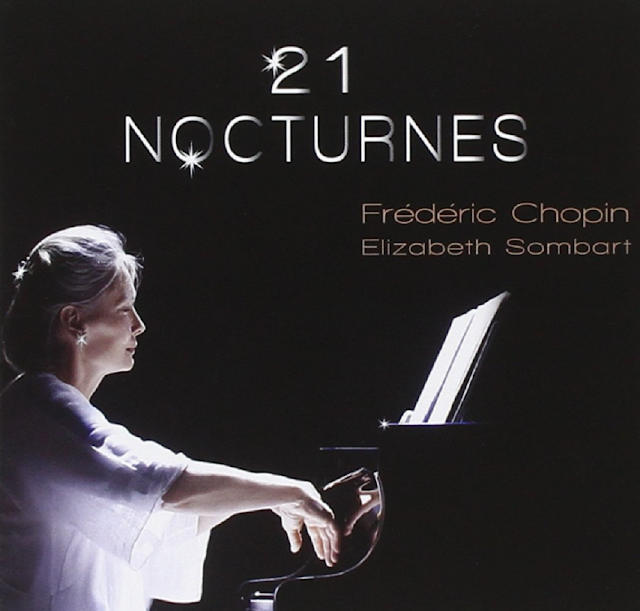Elizabeth Sombart
So delicate is the melody we first hear in “Nocturnes, Op. 9 No. 1 in B-Flat Minor” that one is pressed to turn the volume up if for no other reason than to enjoy the fragility of the music as it comes together before us in real-time.
TWITTER: https://twitter.com/sbibelle?lang=el
Elizabeth Sombart is at the keys for this performance from the mighty book of Chopin, guiding us through further elegance in Op. 9 before turning us over to “Op. 15,” presented in three separate movements in F Major, F-Sharp Major, and G Minor, respectively, but as we’ll soon come to appreciate, her focus is seemingly sharper with every passing flicker of melodicism. In this, her homage to Chopin, titled Singing the Nocturnes, she is separated from the audience only by a pair of speakers; for the material she plays is so intimately crafted that to escape its clutches would be to turn the record off entirely.
There’s unquestionably a sense of sophistication guiding us on this odyssey into musical divinity, but make no mistakes about it - classical newcomers and those who have been studying the genre for the better part of their lives will likely share enthusiasm for what this LP is filled to the brim with.
The posthumous No. 20 & 21 present the darkest hue of any tracks here, but their unabashed angst doesn’t overshadow the depth of emotionality we find in the aching “Op. 62, No. 1-17 in B Major” in particular.
Although there’s an incredible lack of urgency in Op. 55 & 62 the same, the slow burn of the melodic footing in these performances is perhaps what spikes the tension high enough to make the subdued climax of Singing the Nocturnes all the more tangible to the audience. It can be remarkably difficult breathing new life into content as artistically profound as Chopin’s Nocturnes are, but this is a rare instance in which the subject and the player are tethered by a passion so strong that it sounds rather seamless. Sombart’s lifelong training as a pianist does not go unrecognized here; truth be told, I don’t know that anyone could listen to Singing the Nocturnes without acknowledging the potency of her skillset from one composition to the next.
From the vulnerable warmth of “Op. 37, No. 2-12” to her imaginative interpretation of “Op. 27, No. 2-8 in D-Flat Major,” Elizabeth Sombart issues a stunner of a songbook in this all-new album and more than earns herself a spot on the best classical releases of early 2022 with the January debut of this LP.
Her appreciation for the work of Chopin is easy to understand from all angles in Singing the Nocturnes, and while many who pick up this record are going to be familiar with the material long before they ever listen to a stitch of audio, those who are new to the conceptualism and captivating sense of nuance that is Chopin’s music needn’t feel intimidated by the power this woman wields at the piano. This is a supremely accessible offering and one I won’t soon forget as a classical buff.
**********
Trace Whittaker
Newcastle-upon-Tyne
1/2022



Comments
Post a Comment